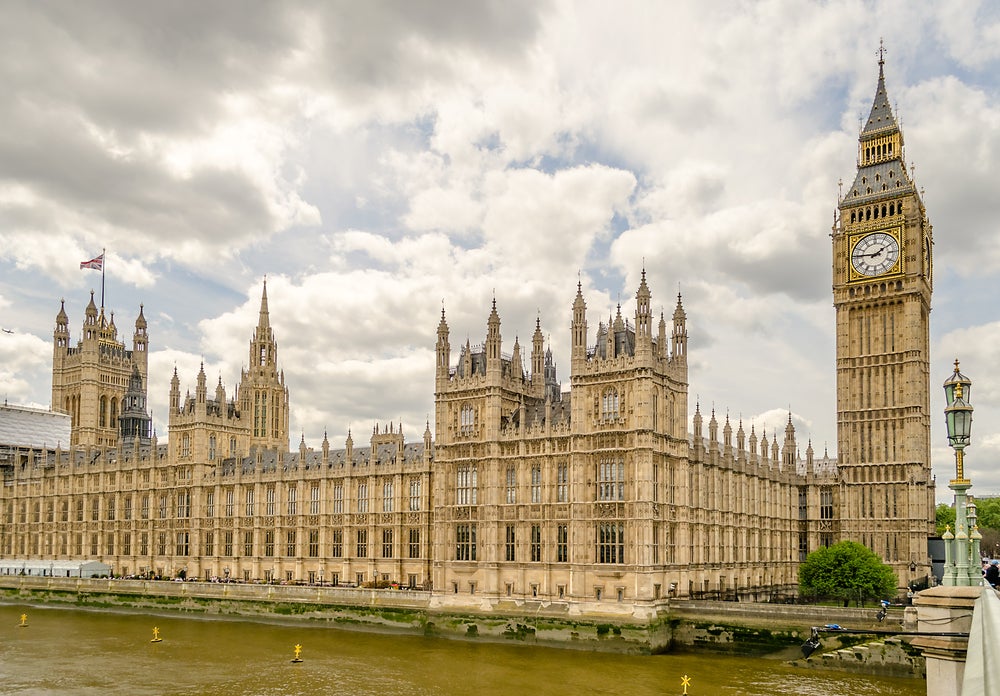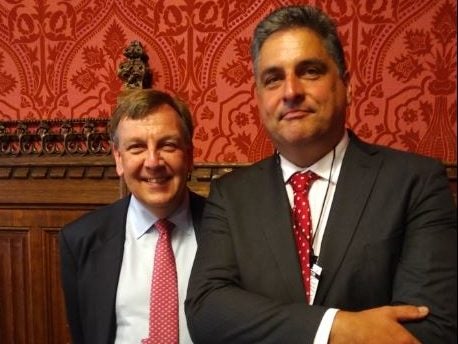
It’s official – the future is looking great for online publishing.
At least that was the view taken at a debate in the Houses of Parliament organised by the Internet Advertising Bureau and the Association of Online Publishers and hosted by The Debating Group.
I was put in the unenviable position of arguing against the motion: “The future is bright for publishers online.”
Whilst not naturally pessimistic about the future of journalism (I could not have done this job for so long if I was) – I argued that unless something changes the future might indeed be less than dazzling.
Well, gloomy that is except for Google and Facebook – the two dominant online publishers.
Last year the Duopoly took more than £6bn in advertising revenue in the UK. The combined total advertising revenue of every national and regional newspaper in the country was just over £2bn.
In revenue terms the UK news industry has been on a downward trajectory for more than a decade. In 2005 national and regional newspapers (and their websites) made nearly £5bn in advertising.
This downward trend is not going to alter unless something fundamental changes in either the way the news industry operates – or the way the platforms who exploit our content so effectively do.
Speaking alongside me was Charlie Beckett of the London School of Economics, who believes the future is not bright for online publishers because many news producers have lost the trust of readers with the partisan nature of much reporting.
Speaking in favour of the motion that the future is bright was Independent editor Christian Broughton.

Independent editor Christian Broughton
He pointed out that going online-only had enabled The Independent to survive.
He said: “The world is changing and it’s changing fast – the question that is going to come back is your attitude towards change.”
He said that today is “the most exciting time to be involved in news publishing”, adding: “I love social media, I think it can be great for journalism.
“The reader gets a good deal – they get news delivered on to their phone in a great format they like, like Facebook Instant articles. It’s free.
“When you’ve got good journalists making a great service for readers you hope you can make the last third of that [making money from it] work.”
He said: “Apparently the big social media firms want to put put us out of business. I don’t think that’s true at all.
“I find it very hard to join the yaboo cry against social media when I work for a company where we had to close the paper because we had to continue with the Independent.
“The economic model for paid, printed nationally distributed news is gone for everybody. Without the likes of Google and Facebook would The Independent be here? I’m not sure it’s a no-brainer that it would.
“Our relationship with them is good. I don’t think there is a single publisher in the world that is big enough to stand up to them. It’s a pragmatic decision but it’s worked.”
He concluded: “People said this would never work. Well we’re here, we’re bigger than we were last year, we are profitable and increasingly so.”
The Telegraph’s managing director for digital Dora Michail also argued that the future is bright noting that “digital media consumption doubled in the last four years, news consumption is growing by 20 per cent per day”.
She said that working with third party publishers of Telegraph content – such as Apple News, Amazon Echo, Google Amp and Facebook Instant Articles – was working for the Telegraph.
She said that 40 per cent of Telegraph digital readers come in via these third parties.
The Telegraph joined mobile messaging platform Snapchat at the start of last month. Michail said it had already reached 4m people on the platform, 69 per cent of whom are under 24.
And she said that more than 600,000 people have now registered with the Telegraph to view its premium content.
She said this is a “truly exciting time for publishers, especially when it comes to traditional ones”.
Among those contributing from the floor of the debate, which took place in a Commons committee room, was Dominic Young, formerly managing director of digital for News International.
He is currently working on a micro payments platform for news publishers called Agate.
He said: “The critically important thing for newspapers is that there is a big gap between the popularity of their product and their ability to get paid.
“Once you start to create a consumer-centric product rather than an advertising-centric product all sorts of things fall into place.
“The subscription model is not the answer and requires consumer making a commitment far above the level of desire they have for a piece of content. The barrier is massively high.
“Anyone who thinks by being more popular money will somehow arrive is engaging in magical thinking – it hasn’t been true for 25 years.
“This is about innovation in the area completely untouched by Google and Facebook which is the area of consumers paying – it is up the industry to set the rules of that game.”
I concluded by saying the future for all online news publishers can be bright, but not under the status quo.
I suggested that Google and Facebook need to find ways to share more of their advertising revenue with the originators of content and that the news industry needs to work together to find better commercial models.
I noted that for all their success at finding digital audiences, The Independent is only just profitable and that Telegraph Media Group profits were down last year.
I also said that there may be a role for regulators, especially when it comes to the area of exploiting personal data – where Google and Facebook are particularly strong.
News publishers can’t compete with two companies which know everything about what nearly everyone does online. If the fight for advertisers was about selling them platforms, rather than micro-targeting via surveillance marketing, I argued that it might a fairer one.
My conclusion was that local newspapers currently face the toughest future with diminishing digital revenue last year despite rapid online audience growth.
Around 100 attended the debate and the vote was fairly comfortably win by those proposing the motion that the future is indeed bright for online publishers.
But afterwards the debate chairman, former culture secretary John Whittingdale, told me that he shared my concerns about the future of journalism.

John Whittingdale MP (left) with Press Gazette editor Dominic Ponsford
And I noted that among those voting against the motion was Nic Newman, author of the Reuters Institute Digital News Report.
There was a strong contingent from Google, who paid for the post-event dinner, in the room.
Whilst they remained silent during the discussion, my impression is that they are listening to the arguments being fired against them and are receptive to the idea that they could have a role to play in saving local news in particular.
Of course they were in the majority who voted in favour of the motion that the future is bright for online publishers. Let’s hope they use their power and money to help make sure it is.
Email pged@pressgazette.co.uk to point out mistakes, provide story tips or send in a letter for publication on our "Letters Page" blog






